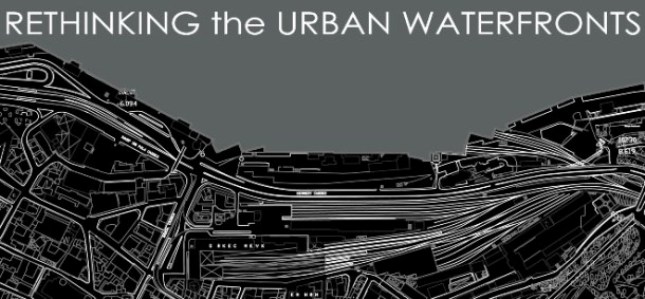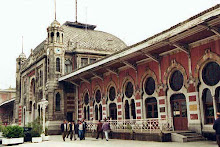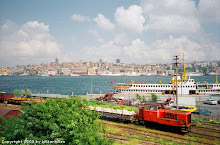“Rethinking the Urban Waterfronts” is a series of workshops that is supported by ERASMUS IP program; organized with the coordination of Mimar Sinan Fine Arts University (Turkey) and collaboration of Universidad Politecnica de Valencia (Spain), Hafencity Universitat Hamburg (Germany) and Artesis Hogeschool Antwerp (Belgium). The first workshop of the 4 year program will take place in Istanbul / Turkey between 14- 27 February 2010.
Students of architecture and urbanism will work together to develop a new vision to SIRKECI, one of the most important waterfront site in Istanbul located in the historical city, and design the physical urban space as well as the old train station and surrounding buildings according to their new concepts.
The workshop will take place in the Fındıklı building of Mimar Sinan Fine Arts University, Faculty of Architecture.
Aim of the Program:
Waterfront areas of industrial cities are transforming in the means of use, identity and image in the new century. Former uses are moving to different parts of the cities and the areas close to historical centers change with the effects of tourism and creative economies. Partner cities of the IP have different types and physical forms of waterfronts with similar uses.
The aim of the project is to analyze the waterfront sites in different cities to understand the changes and current needs at the first step. Different cities have different relations with the sea, and waterfront experiences vary according to the needs and developments in that city. To learn about the history and understand the transformation processes of different sites is important for exchanging ideas and sharing experience for future. The topic will be discussed in the urban design scale; architectural elements and open public spaces will the analyzed. The main issue is to brace public domain in the projects of urban design. While working on the physical structure of the site, students have to think and consider the urban domain, linkages with the daily life and uses in the area.
In the education of architecture and urbanism, students need to be trained in the reality of urban space with the effect of economical, social and physical pressures / changes. In the last 20 years city’s relation with the sea acquire a different form, so waterfronts became important laboratories for professionals and students to design a new interface between sea and the city; and also to answer the contemporary needs of the area.
The IP project aims to discuss the new role and character of waterfronts in the city and define an exercise area for architecture and urbanism students to understand, to experience and design for such areas.
- Mixed groups of students from partner universities are going to work on the subject as teams. Site visits and lectures about the subject will support the workshop in theoretical extent.
- During the studio works, professors of the partner universities will be discussing the project of each team so the students can learn different approaches, methods and point of views in education.
- The main output of the IP will be the design projects of each team submitted at the end of the workshop. Before the beginning, every host has to prepare an information package / file with site drawings, reading list and basic information about their city and workshop site.
- Expected outputs of the workshop are mainly the drawings, sketches, models and conceptual presentations in urban and architectural scale. Every group will submit a final project with all these materials. After the workshop a book will be prepared, that gathers all the basic information about the site, brief of the workshop, conceptual projects of the students and final projects.
Project Background:
All partner cities of the project have a very strong connection with sea and their identities are mostly based on sea related activities. The waterfronts differ according to the physical, geographical and economical aspects in each city, so as the needs of the people and responses of the local governments. The IP aims to understand this different characteristics and approaches for the waterfronts in different environments. Sharing ideas on the same subject provide new information and experience. Also, training students on such a current issue is important for broadening their vision and design capacity in order to think and create solutions under different circumstances / conditions.
In 2009, partners of the project came together to discuss on the subject and organized a small lecture program to be able to highlight the main issues and areas in their cities. This first step of sharing information could develop in time and turn into a lecture series and a curriculum with the support of the IP funding.




